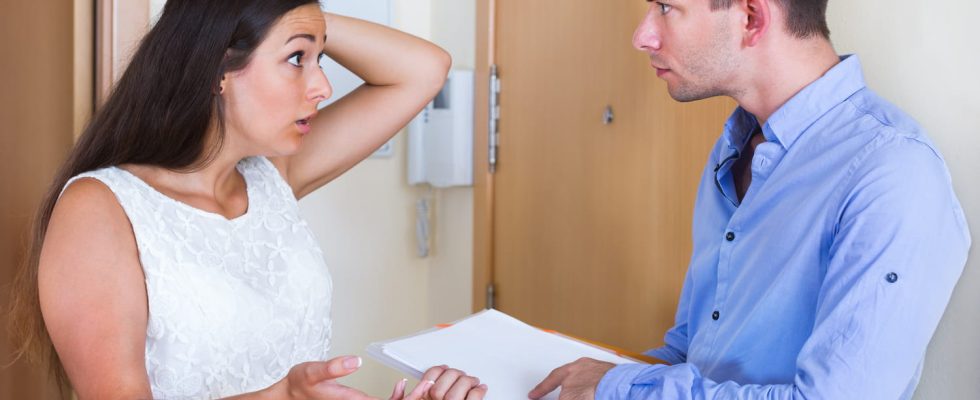Even when you have moved out of your old home, some bills may still be sent to you.
A terse e-mail, out of nowhere, which is enough to make anyone who opens it break out in a cold sweat. And it’s not a scam or a bad joke… Marie (not her real name) still can’t believe it. At the beginning of February, her former owner ordered her to pay more than 1,000 euros of charges dating from 2021 even though she has not lived in the apartment since last June. A mistake ? Nay ! The lessor is within his rights. However, the thirty-year-old, nor her roommate at the time, had been informed that this bill could arrive at any time. Moreover, very few tenants are aware of this rule which can cost them (very) dearly.
Every month, they pay rent. This is broken down into two parts: the amount corresponding to the home and that corresponding to the charges. The amount taken for charges is a flat rate calculated according to the co-ownership charges (cleaning, elevator, electricity for common areas, household waste, etc.) and energy subscriptions (water and/or gas) if the tenant does not have them directly paid for (which is obligatory for the electricity of the accommodation).
However, with the rise in prices, the package estimated at the start of the contract may not cover all costs. Thus, an adjustment to fill the gap between the amount already collected and the amount actually to be paid is made once a year. But in co-ownerships, these calculations are not always done very quickly. And regularizations can arrive very late.
Marie and her roommate paid the price. Overnight, their ex-landlord sent them the regularization for the year 2021, more than two years later. Except that it is not illegal: any owner can come back to his (former) tenant within three years so that he can pay the sums due. A rule that the two friends had not been informed of when they moved in and which was not written anywhere in their contract. On the other hand, the regularization bill has arrived: 1100 euros for both of them, or 550 euros each. The cold shower.
Especially since in their building at the time, charges were paid by percentage and not by actual consumption. “It is water and gas which mainly weigh in on regularization, while we hardly used heating,” criticizes the woman who lived in Cergy (Val-d’Oise). If she resigns herself to complying with the regulations, Marie knows that she will have to check out again: “I still have two years during which regularizations (for 2022 and 2023) risk arriving unexpectedly in my emails. ” And this, completely legally, and while 450 euros have already been withheld from his deposit when leaving the apartment for the regularization of charges for 2023.
These regularizations must be accompanied by supporting documents and any additional document may be requested by the tenant. Furthermore, while the texts provide that regularization can be requested even in the event of “forgetfulness, ignorance or negligence of the owner”, an installment of payment can be requested under certain conditions. Enough to make this “quite unpleasant” pill go a little better.
